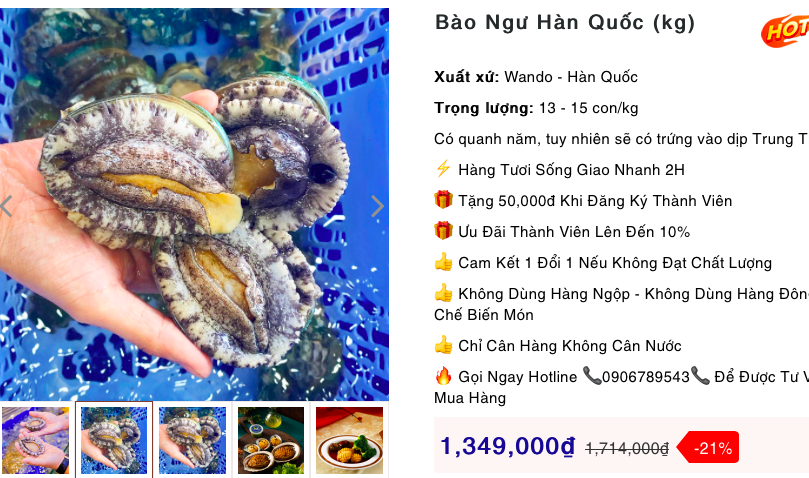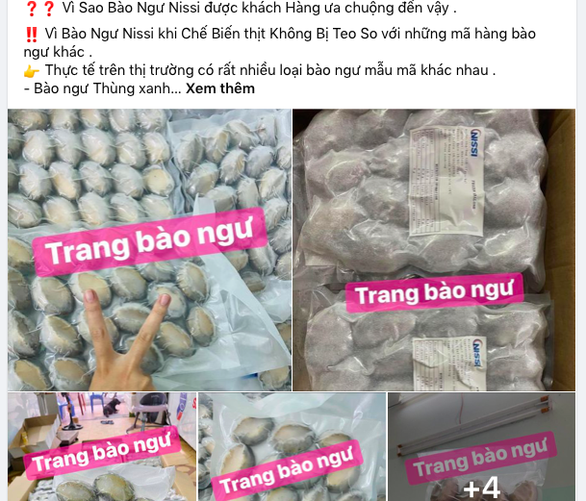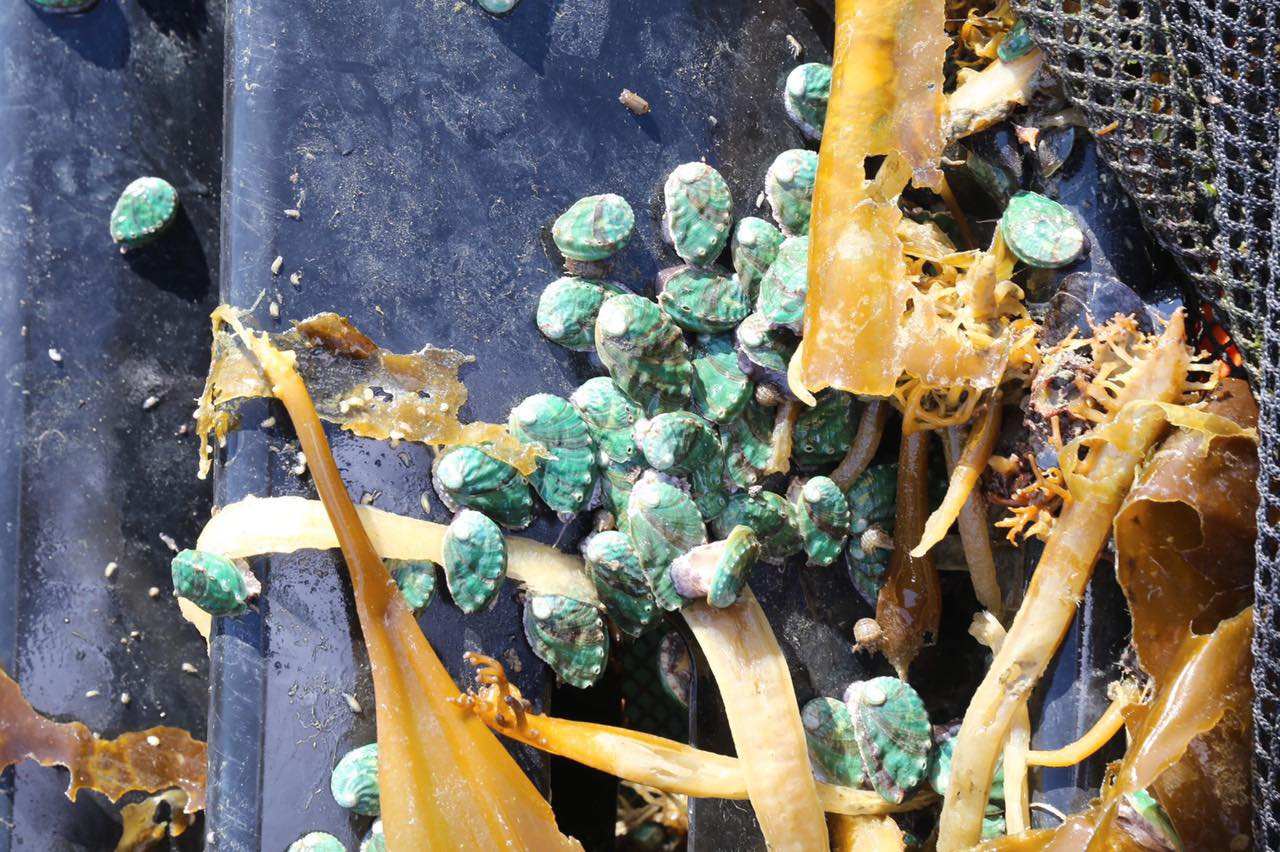Recently, there has been an increase in abalones on the Ho Chi Minh City market with unknown sources of supply. Although many of these products are advertised as imports from South Korea or Australia, even large importers cannot offer such low prices. So be careful!
Currently, there are many online stores on the Ho Chi Minh City market advertising abalones imported from South Korea and Australia.
However, exactly where these goods come from is still a big question for customers as well as regulators.
Representatives of some seafood stores have revealed that certain sellers are fraudulently advertising cheaper Chinese abalones as more expensive imports from South Korea and Australia in order to deceive their customers.
On a Facebook page claiming to be a wholesale importer of abalones in Ho Chi Minh City, a large number of seller accounts can be found offering diverse types of abalone at different prices, most of which are frozen products.
On October 9, a Tuoi Tre (Youth) newspaper reporter contacted an account named 'Trang Bao Ngu...' (literally 'Trang Abalone') on their Facebook page.
The seller said that he sells frozen Nissi brand abalone imported from South Korea at VND295,000-390,000 (US$12-16) depending on the size of the abalone. The seller added this price was for customers buying a package of 10 kilograms.
The vendor also advertised another type of abalone that was farmed in China but was South Korean-bred and priced at VND275,000 (US$11.5) per kilogram.
Asked about the expiration date, the seller claimed that most products would be best consumed before 2024. However, when the reporter inquired about the import documentation and quality certification of the Chinese abalone, the seller did not answer.
According to the journalist's observations, some of these products do not have Vietnamese labeling which is a must for imported goods sold in the local market.
|
|
| A Facebook account sells frozen abalone claimed to be imported from South Korea at VND295,000-390,000 ($12-16) per kilogram, but it also vends Chinese abalone at a lower price. Screenshot: N. Tri / Tuoi Tre |
When contacting an online store called 'Abalones at wholesale price,' the reporter was told that they only sell Nissi abalones imported from South Korea at VND300,000-400,000 ($12.5-17) per kilogram. This rate is applicable to a package of 10 kilograms.
Asked if there were cheaper imported abalones, the seller said there were, even if the price was half that of the Nissi product. Due to the unstable quality of the cheaper abalones, however, the seller said they had no product available at this time.
At the same time, on another Facebook page called 'Imported seafood...', the vendor advertised frozen Nissi abalones as an Australian brand with a price of about VND350,000 ($14.50) per kilogram depending on the type and claimed to be able to supply as much as the customer demands.
Yet, many abalone dealers in Ho Chi Minh City assured that Nissi is a South Korean abalone brand. Moreover, Australian abalone is mainly the Australian, green-lipped abalone fetching VND1.7-3 million ($70-124) per kilogram depending on the species.
|
|
| These abalones are claimed to be imported from South Korea with a darker blue color than the Chinese ones. Screenshot: D.V. / Tuoi Tre |
Cheap Australian and South Korean abalones?
Tran Van Truong, director of Royal Seafood International Trading Company Limited in Ho Chi Minh City, told Tuoi Tre on October 9 that frozen abalone prices cannot be lower than VND600,000 ($25) per kilogram if it is South Korean.
For live abalone imported by air, the rate should be at least VND1.4 million ($58) a kilogram, Truong said.
"Abalone is a very nutritious food, while South Korean abalone is raised in the sea under extremely strict conditions," he elaborated.
"Since they are fed with natural food, it often takes a few years for them to reach the standard weight of about 12-15 abalones per kilogram and be ready for sale.
"Although they are frozen, South Korean abalones cannot be sold at VND350,000 per kilogram.
"The price of Australian abalone is even higher than its South Korean counterpart."
A representative of a seafood store in Ho Chi Minh City told Tuoi Tre that Chinese abalone, which is farmed in an industrial model with huge production, is sold at a cheaper price than that from South Korea and Australia
For this reason, some sellers have imported Chinese abalones but lie that they sell products from South Korea and Australia to cheat customers
"Chinese abalones often have lighter colors, while South Korean ones have a darker hue," the representative said.
"However, the distinction is only a guide because abalone is so diverse.
"To be sure they are buying real goods, customers should go to reliable stores or ask sellers for documents confirming the origin of imported abalone, the product's quality certificates, and Vietnamese labels."
Like us on Facebook or follow us on Twitter to get the latest news about Vietnam!



















































